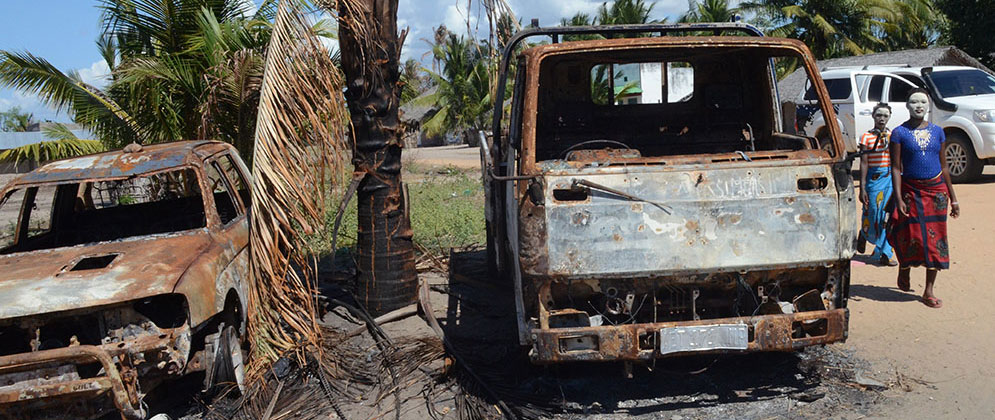By Fernando Gonçalves
Mozambique has largely been seen as one of the few countries in Africa that had made a break with the continent’s checkered past, having embraced a multiparty system of democracy anchored on the values of freedom and liberty.
In 1990, the country’s then one-party national assembly adopted a new constitution enshrining the principles of regular democratic elections, freedom of expression and media freedom. This was followed by the adoption of the Press Law in August 1991, incorporating some of the most critical provisions of a free press and access to information.
In 1994, the country held its first multiparty elections, which also marked the end of a brutal 16-year war between the government and former Renamo rebels. After attempts to amplify the freedoms enshrined in the 1990 constitution failed under the first multiparty parliament, it finally happened years later. The 2004 Constitution, which still remains in force, is widely seen as a great achievement and a model of a modern liberal state.
“All citizens have the right to freedom of expression, freedom of the press, as well as the right to information,” the constitution highlighted in article 48, further stating in paragraph 5 of the same article, that “the state guarantees independence of the public sector media, as well as the independence of journalists in relation to the government, the administration and other political interests”.
With its progressive political, economic and social agenda, Mozambique was then hailed as a rare example of successful post-war reconciliation, reconstruction and development. Western donors and international financial institutions competed to help the country rebuild its shattered economy and infrastructure, develop its democratic model and restore its social fabric. Freedom of expression was taken for granted, as private newspapers, radio and television stations, as well as community media flourished.
Then the biggest financial scandal in the country’s history was uncovered in 2015. In great part due to the prospects of becoming a major offshore natural gas producer and exporter, Mozambique had to rapidly develop a maritime security framework. And rather than bringing in expertise from elsewhere, the government of then President Armando Guebuza opted for a do-it-yourself approach.
To achieve its objective, between 2012 and 2013 the government established three (3) independent, but interrelated companies, all under the command of the country’s national intelligence agency, SISE. One of the companies, EMATUM, would be a tuna fishing company with its own fleet of fishing boats; another company, PROINDICUS, would provide maritime surveillance and security, and MAM would develop shipyard facilities for building and maintaining the fishing trolleys or any other maritime equipment.
The entire project was estimated at about U$2.4 billion, with the funds being secured through commercial and syndicated loans that involved Credit Suisse and Russia’s VTB Capital. All three loans (2 with Credit Suisse and 1 with VTB) were guaranteed by the state.
News about the scandal started filtering in early 2015, with the government always denying that there was anything irregular. Local media outlets that tried to further investigate the consistent reports coming mainly out of the United States were publicly chastised by government officials and ruling party bureaucrats as unpatriotic and servile to foreign interests bent on discrediting the country and its leadership.
This is also the time when attempts at suppressing the media started being more brazen. An academic and media commentator, José Macuane, was kidnapped and assaulted in broad daylight by unknown assailants believed to be state security operators. The message was meant to be loud and clear; to silence any future public debate about the issue of the hidden debts.
A subsequent report, funded by the Swedish government, revealed the true extent of the scandal, and why the state security apparatus was being used to suppress any debate. The main contractor, Privinvest, a shipbuilding group based in the United Arab Emirates, had used a significant portion of the proceeds from the loans to bribe top Mozambican government officials while supplying substandard equipment.
One of those involved was former finance minister Manuel Chang, who served under President Guebuza for both of his five-year presidential terms. Chang is currently in a South African jail, awaiting a decision on whether to extradite him to the United States, where most of the bondholders for the scandalous loans initiated legal proceedings.
A further 18 individuals are awaiting trial in Mozambique in connection with their role in the fraud, including Gregório Leão, the former head of the country’s spy agency, and his economic intelligence director, António Carlos do Rosário, who also headed the three (3) companies related to the project.
Terrorism in the North
As if the situation was already bad enough, what was to come later was even more catastrophic. By early October 2017, when Islamist-linked terrorists launched their war in the northern province of Cabo Delgado, official media bushing had become the norm in Mozambique. The government responded to the events in the north with an indiscriminate use of force that resulted in human rights violations.
To conceal these violations, the security forces adopted a strategy of turning Cabo Delgado into an off limits region, making it clear that journalists were not welcome in the province.
In December 2018, Estacios Valoi, a local journalist, in the company of David Matsinhe, a researcher working for Amnesty International, were detained without any explanation for three (3) days in Macomia District, with their equipment being taken away from them.
On 5th January 2019, another journalist, Amade Abubacar, was arrested by the security forces as he covered the arrival of a group of civilians who had been uprooted from their village, which had come under attack by the terrorists. Abubacar was taken to military barracks in Mueda District, some 200 kilometres away, where he was tortured, before being brought to the local Prosecutor’s Office five (5) days later to face charges of espionage, together with his colleague Germano Adriano. They are still awaiting trial, more than two (2) years later.
On 7th April 2020, another journalist, Ibraimo Mbaruco, this time from a community radio station in the district of Palma, was kidnapped in what is widely believed to have been an officially sanctioned operation. He has not been seen ever since.
Cracking down on the media
As new and more vibrant media outlets came into existence, partly as a result of the growth in internet and social media usage, the government finds itself in a situation that makes it difficult to control the flow of information.
In an apparent attempt to confront the situation, in 2018 the government announced a whole set of new fees that local media houses and foreign correspondents would be required to pay in order to obtain or renew their licenses or accreditations. The fees were so exorbitant that most media houses would effectively cease to operate, with the country being literally shut from the rest of the world.
In response, media freedom advocacy organizations such as MISA-Mozambique led a collective effort to have the Constitutional Council declare the measures unconstitutional. Anticipating defeat, the government was forced to withdraw the decision almost one year later.
But withdrawing was just a strategic retreat; by no means did it mean giving up. In December 2020, Cabinet submitted to Parliament a bill that seeks to replace the existing Media Law, which has been in force since 1991.
Media practitioners in Mozambique believe that if passed into law, the bill will tighten government control of the media, while reversing thirty years of freedom and democracy in the country.
“I believe the government is trying to capture the media and journalists, and use them to its own ends,” says Refinaldo Chilengue, proprietor and editor of Redactor, a web-based publication. Chilengue points at examples of political interference even in the private media, saying that “those who rule politically are the same as those who wield economic power to force the media to bend backwards”.
The proposed bill gives powers to the government to appoint the regulator and to decide who should be a practicing journalist. It has also removed a number of provisions in the current law which guarantee independence for media professionals working for the public sector media.
If adopted as proposed, these and other provisions of the bill could in future trigger a constitutional challenge, since most of them are in conflict with the current constitution.
Observing that the country is facing “very dangerous prospects as a result of the policing of critical thinking”, investigative journalist Luís Nhachote says that if adopted, “this Bill will take us backwards in terms of the gains we had made a long time ago with a great deal of sacrifices”.
Fernando Goncalves is Editor of Mozambique’s leading weekly newspaper, Savanna.


